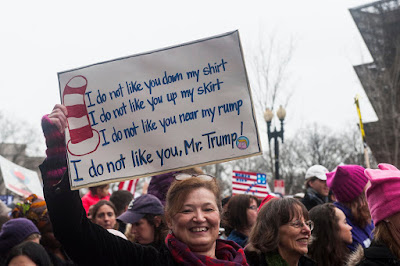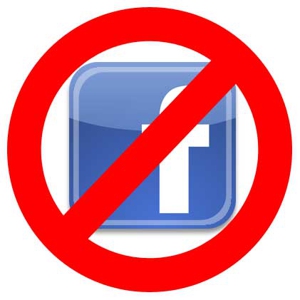As I've been sifting through and processing the events from Charlottesville this past weekend, I've found myself wondering about the violent counter-protesters, the ones who gave Trump the opening to spew his "both sides are bad" bull$#!%. Scanning through right-wing viewpoints (difficult, but important for me), I kept reading about Antifa, the "violent militant far left group" who "threw punches" and caused problems.
I had never heard of Antifa (which doesn't mean much. I haven't heard of a lot of things), so I had to look it up. (The link is to Wikipedia, but after reading several varied sources, I felt like the wikipedia page did a pretty good job of summing it up.) Perhaps one of the most helpful tidbits was learning that Antifa is short for Anti-facists. That seems important. Shouldn't that be a good way to describe all of us?
I admire another aspect of the mission of Antifa--constantly confronting neo-nazis and white supremacists everywhere, with one underlying belief being that a small group of neo-nazis has the power to grow into a large one (see: history), and so every appearance or action ought to be met head on.
I believe in the power of protest, too, and not just the stand-behind-the-barricade-and-hold-your-signs kind. Sometimes protest has to inconvenience people. The sit-ins of the 60s were a huge inconvenience for lunch-counter owners and their patrons. Blocking a street may be super aggravating to the person who wants to get through so he can get to the movies on time, but it's nothing compared to the inconvenience faced by those who are systemically mistreated and oppressed. Of course, lots of folks are far too selfish and unaware of their own privilege to realize that, but that doesn't make it any less true.
Still, I'm not ready to throw over the whole governmental system just yet. Anarchy stresses me out. I prefer to believe in justice and liberty for all as values we should continue to work towards.
MLK preached non-violence, but when you think about the reason, it's chilling. He believed that a peaceful protester being humiliated, harassed, and even beaten, was going to make the racist look like the bad guy. When that action was directed at children, the racist looked even worse. Let the racists condemn themselves with their own actions! Great! But don't forget...in the process, those peaceful protesters--including children--were humiliated, harassed, beaten, and sometimes killed.
Being a peaceful protester is dangerous work. Ask Heather Heyer. Oh wait. We can't.
Some have argued that Antifa saved the lives of counter-protesters.
So maybe Antifa has a point. Maybe sometimes you have to throw a punch. Or a rock. Or light a fire. Or maybe not. But it's a lot easier to condemn the use of violence from a comfortable couch in a comfortable livingroom in a position of safety and privilege.
Even before doing any research, of course, it was clear that Trump's "both sides are bad" rhetoric is bullbull$#!%. It diminishes the importance and danger of the entire situation, and it gives credibility to the white supremacists. We can't do that. That's not an option.
As a teacher, I'm discouraged from bringing my political beliefs into the classroom. In a course that uses world events as a textbook, that can be challenging, but I work very hard to present multiple viewpoints from conservative to liberal. I understand that I should not be telling my students what to think. My job is to help them learn how to think. So I don't tell my students whom I vote for. I don't generally share my position on most local or national issues, like bear-baiting or the legalization of marijuana.
But as I look at the current state of things in the United States, I can't look at white supremacists and neo-nazis and say, "well, they're entitled to their own opinions." I mean, yes I can. Free country, and all that. But though they are entitled to their own opinion, I can't keep quiet about mine in this case--my opinion that there is no superior race, that whites are not targets of discrimination just like blacks, Jews, Muslims, women, transgendered folks, etc. That systemic racism doesn't exist.
Sometimes I just have to call bull$#!%.
Supporting equal rights for all is not taking a side. Speaking out against those who hate is not taking a side. Reflecting on my own implicit biases and the rewards of privilege I didn't even realize I had and asking students to do the same is not wrong. It's doing what is right.
This essay, What Trump Gets Wrong About Antifa, helped me clear my head about the issue of violence from both sides. And it also sums up my initial thoughts about Antifa.
So now that I, like roughly a zillion other people, have written my thoughts about the state of things, where does that leave me? What are my next steps?
Well, this will surely impact my teaching this fall.
And here are just a few resources for taking more action (thank you to my Facebook friends for sharing these and other resources).
Ten Ways to Fight Hate: A Community Response Guide (from the Southern Poverty Law Center)






